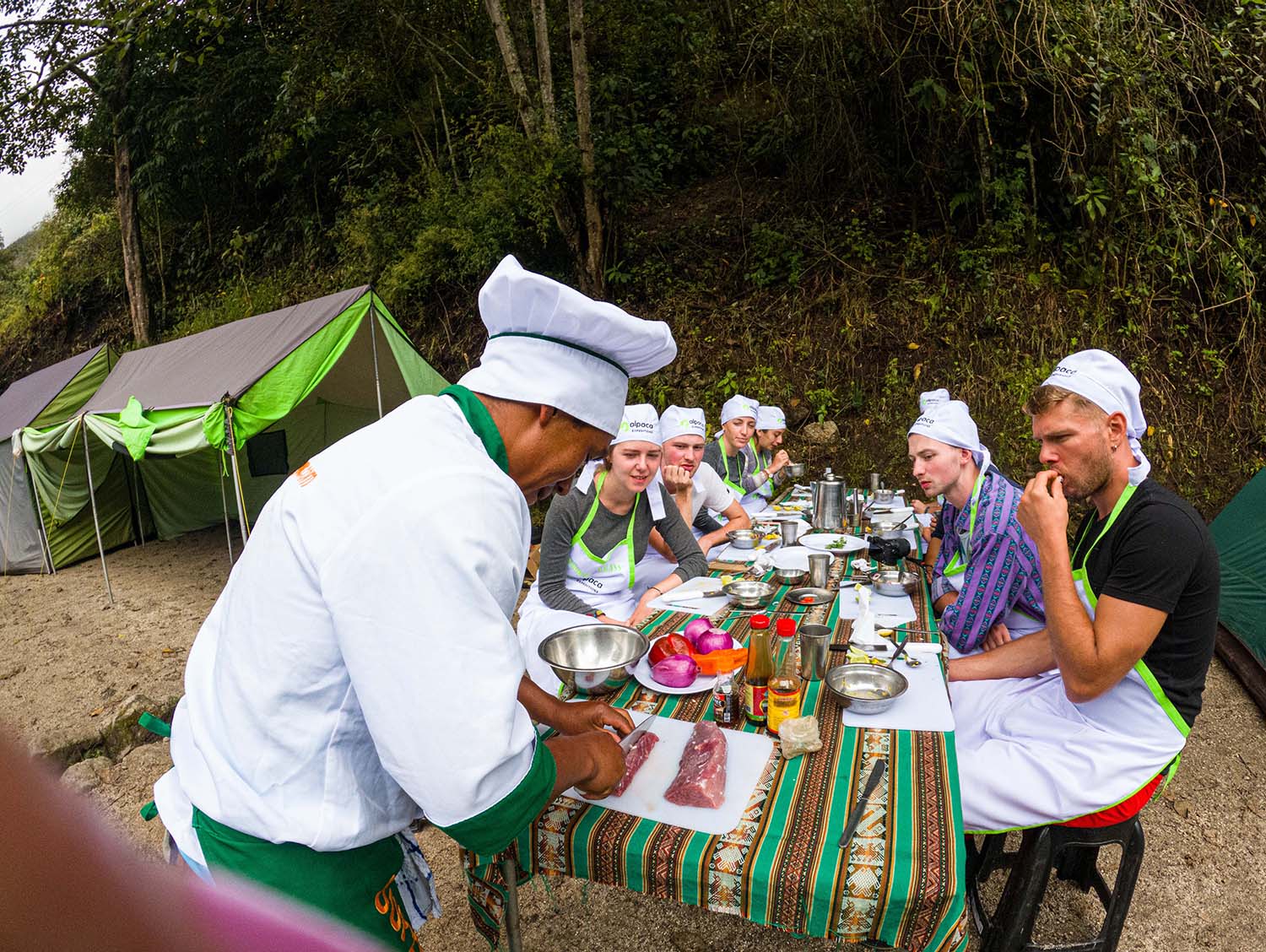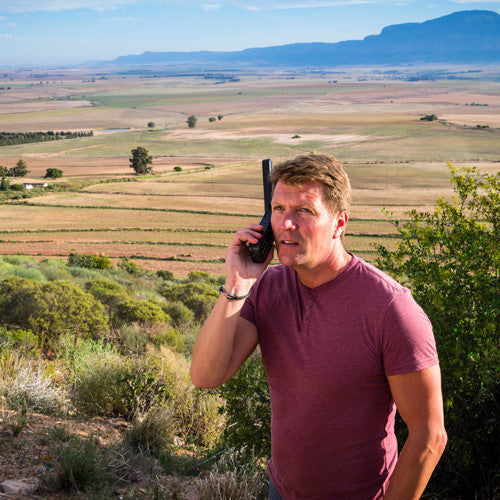Eco-Tourism on the Inca Trail: How Sustainable Travel is Preserving the Route
Eco-Tourism on the Inca Trail
The Inca Trail is one of the most famous trekking routes in the world, attracting thousands of visitors every year. This ancient path, built by the Incas, leads to the breathtaking Machu Picchu, offering stunning views, historical ruins, and a unique adventure. So it is really important to promote Eco-Tourism on the Inca Trail.
However, due to the high number of tourists, the trail faces serious environmental challenges. Overcrowding, littering, and erosion are damaging the natural beauty and historical sites. If not controlled, these issues could ruin the trail for future generations.
This is where eco-tourism plays an important role. Eco-tourism focuses on responsible travel that protects nature and respects local cultures. It encourages tourists to minimize waste, follow strict guidelines, and support local communities. By choosing eco-friendly trekking companies, visitors can help preserve the trail.
Alpaca Expeditions is a leading tour operator dedicated to sustainable and responsible travel. Their Inca Trail tour follows strict environmental rules, ensuring that the trail remains clean and protected. They also support local communities by providing fair wages and good working conditions for porters.
By choosing an Inca Trail tour with a responsible company like Alpaca Expeditions, travelers can enjoy an amazing experience while helping to protect this historic trail for future generations.
Challenges Faced by the Inca Trail Due to Tourism
The Inca Trail is one of the most famous trekking routes in the world, but its popularity also brings many challenges. One major issue is overcrowding. Thousands of tourists visit the trail each year, causing heavy foot traffic. This constant movement leads to erosion and damages the ancient stone paths, making them weaker over time.
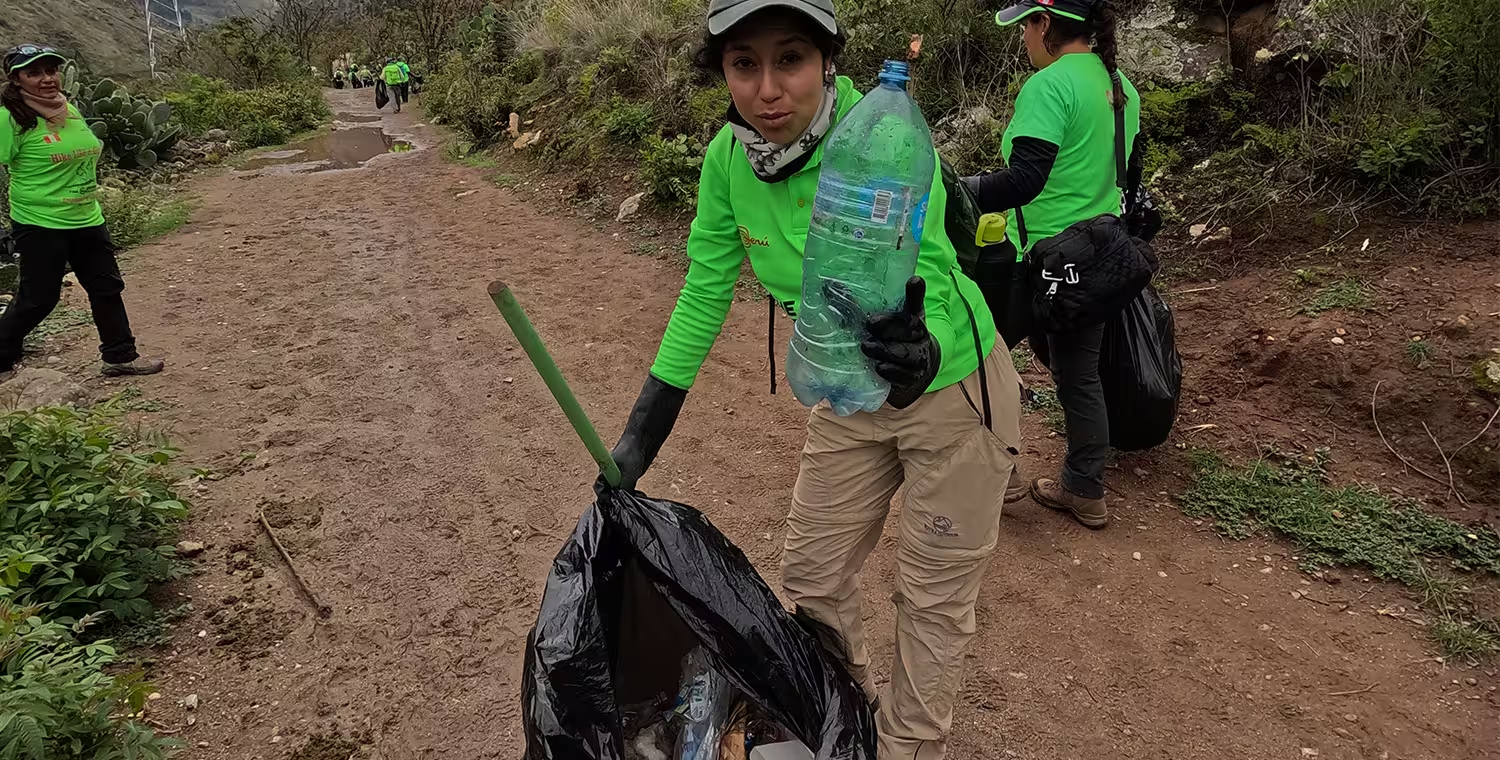
Another big problem is waste management. Many travelers leave behind plastic bottles, food wrappers, and other trash. Without proper disposal methods, this waste harms the environment and spoils the beauty of the trail. Some campsites struggle with sanitation, making it difficult to keep the area clean.
The environmental impact of tourism is also serious. Deforestation happens when trees are cut down to make space for campsites. Soil erosion washes away important parts of the trail, and the natural habitat of plants and animals gets disturbed.
Finally, cultural preservation is a major concern. The Incan heritage is at risk due to commercialization. Some sacred sites along the trail are damaged by careless visitors. It is important to choose an Inca Trail tour that respects the local culture and helps protect the trail for future generations.
How Sustainable Travel is Helping Preserve the Inca Trail
Sustainable travel is very important to protect the Inca Trail for future generations. Many travelers visit this ancient route every year, and without proper care, it can be damaged. To protect the trail, the government has set strict regulations.
Only a limited number of people are allowed to hike each day, and all visitors must book an Inca Trail tour with a licensed tour operator. This helps control crowding and reduces harm to the environment.
Eco-friendly trekking practices are also helping to keep the trail clean. One important rule is the Leave No Trace principle, which means all waste must be carried out and properly disposed of.
Travelers are encouraged to bring reusable water bottles instead of plastic ones to reduce pollution. Another key practice is respecting local plants and animals by not picking flowers, feeding wildlife, or disturbing nature.
Sustainable travel also benefits local Quechua communities. Many tour companies, like Alpaca Expeditions, hire local guides and porters, ensuring they receive fair wages and proper treatment. This helps the community grow while preserving their culture.
By choosing a responsible Inca Trail tour, travelers can enjoy this historic route while helping to protect it for future generations.
Alpaca Expeditions: A Leader in Sustainable Trekking
Alpaca Expeditions is committed to protecting nature and supporting local communities while providing an unforgettable Inca Trail tour experience. Their eco-friendly practices help reduce waste and ensure that the trail remains beautiful for future generations.
One of the key ways Alpaca Expeditions promotes sustainability is by using biodegradable toiletries, composting toilets, and solar-powered lighting at campsites. These small changes make a big difference in reducing pollution along the trail.
They also take great care of their porters, who carry supplies and set up camps. The company ensures that all porters receive fair wages, proper clothing, and nutritious meals during the trek. This ethical treatment improves their working conditions and respects their hard work.
Beyond the trail, Alpaca Expeditions invests in local education, healthcare, and village infrastructure. By giving back to the community, they help improve the lives of indigenous families in Peru.
Additionally, they lead clean-up treks and support reforestation projects, helping to protect the environment.
How Travelers Can Support Eco-Tourism on the Inca Trail
If you are planning to hike the Inca Trail Tour, you can help protect the environment and support local communities by traveling responsibly. Here are some simple ways to promote eco-tourism:
-
- Choose Responsible Tour Operators
Always book your Inca Trail Tour with a company that follows sustainable travel practices. Alpaca Expeditions is a great choice because they care about the environment, treat their porters fairly, and give back to local communities.
-
- Pack Responsibly
Bring a reusable water bottle instead of plastic bottles to reduce waste. Use biodegradable soap to avoid polluting water sources. Pack light so that porters do not have to carry too much weight, which can be harmful to them.
-
- Respect Local Culture & Nature
Follow the rules set for the trail. Do not take anything from the ruins or damage plants. Keep noise levels low to respect both nature and other travelers. The Inca Trail Tour passes through sacred Inca sites, so always show respect.
-
- Participate in Conservation Efforts
Join local clean-up hikes or donate to projects that protect the environment. Small actions, like picking up litter, can help keep the trail clean for future generations.
Conclusion
The Inca Trail is one of the most famous trekking routes in the world, leading to the breathtaking ruins of Machu Picchu. However, with thousands of tourists visiting each year, the trail faces challenges like pollution, erosion, and damage to historical sites.
This is why eco-tourism is so important—it helps protect the natural beauty and rich history of the trail while allowing future generations to experience its wonder.
One of the best ways to support eco-tourism is by choosing a responsible trekking company. Alpaca Expeditions commits to sustainable travel by following strict environmental guidelines, supporting local communities, and ensuring fair treatment of porters. and ensuring fair treatment of porters. They use eco-friendly camping equipment, reduce waste, and organize clean-up hikes to keep the trail clean and safe.
When planning your Inca Trail Tour, make a responsible choice. Travel with a company that values nature, history, and ethical tourism. By trekking with Alpaca Expeditions, you are not only enjoying a once-in-a-lifetime adventure but also helping to protect the Inca Trail.
Join Alpaca Expeditions for an unforgettable and sustainable journey on the Inca Trail. Travel responsibly and help protect this ancient route for future generations!
You might like these as well:
- Why the Inca Trail is the Best Way to Reach Machu Picchu: A Trekking Experience Like No Other
- Fascinating Constellations and Panoramic Views of the Andes: An Unforgettable Experience on the Inca Trail
- How to Secure Your Spot on the Inca Trail 2025: A Step-by-Step Guide
- Explore the Best Inca Trail Tours and Alternate Routes to Machu Picchu
Alpaca Expeditions Recognitions
ISO (International Organization for Standardization)
In the pursuit to stand out from the rest, Alpaca Expeditions has obtained four ISOs plus our carbon footprint certificate to date. These achievements result from our efforts to implement the internationally-recognized integrated management system. They also represent our commitment to all of our clients and staff of operating sustainability and responsibility in every way possible.
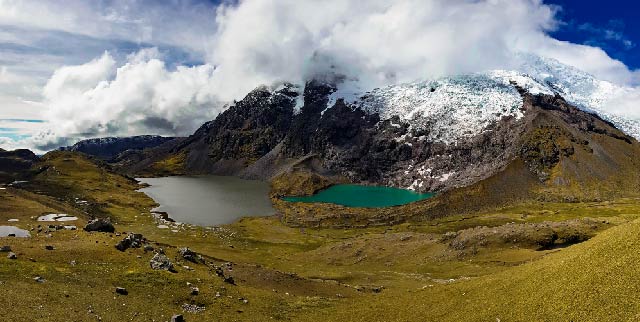
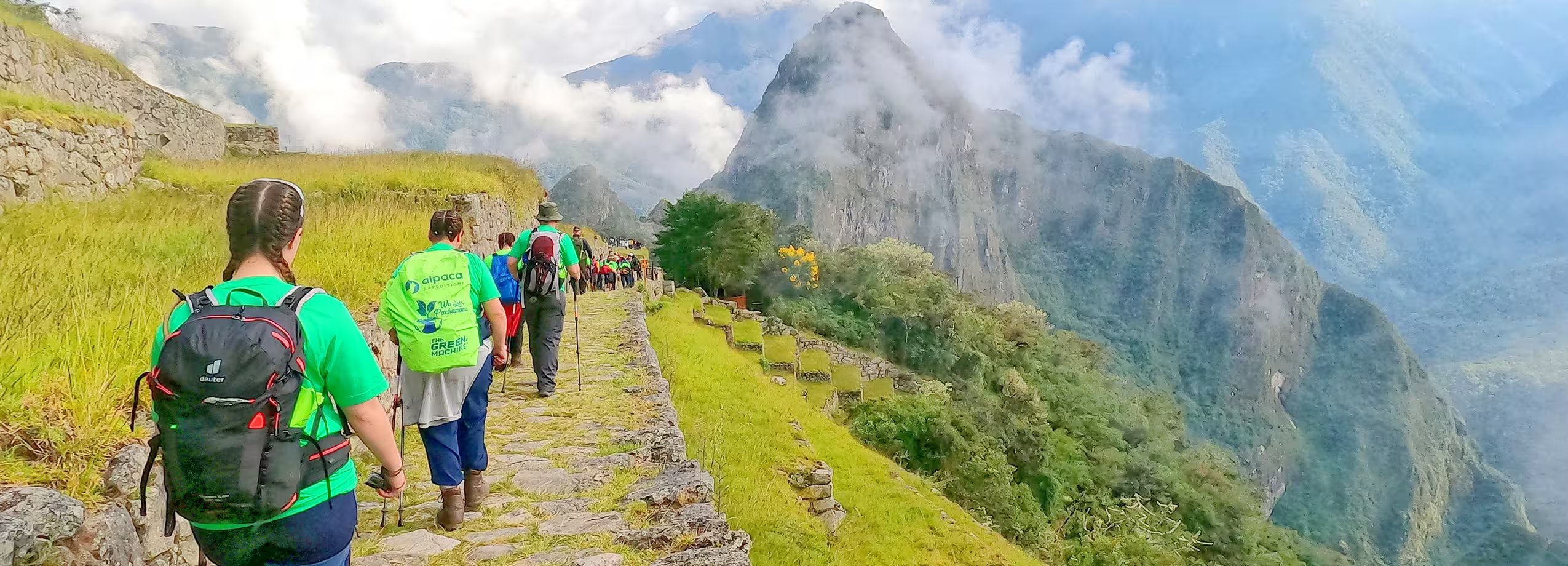
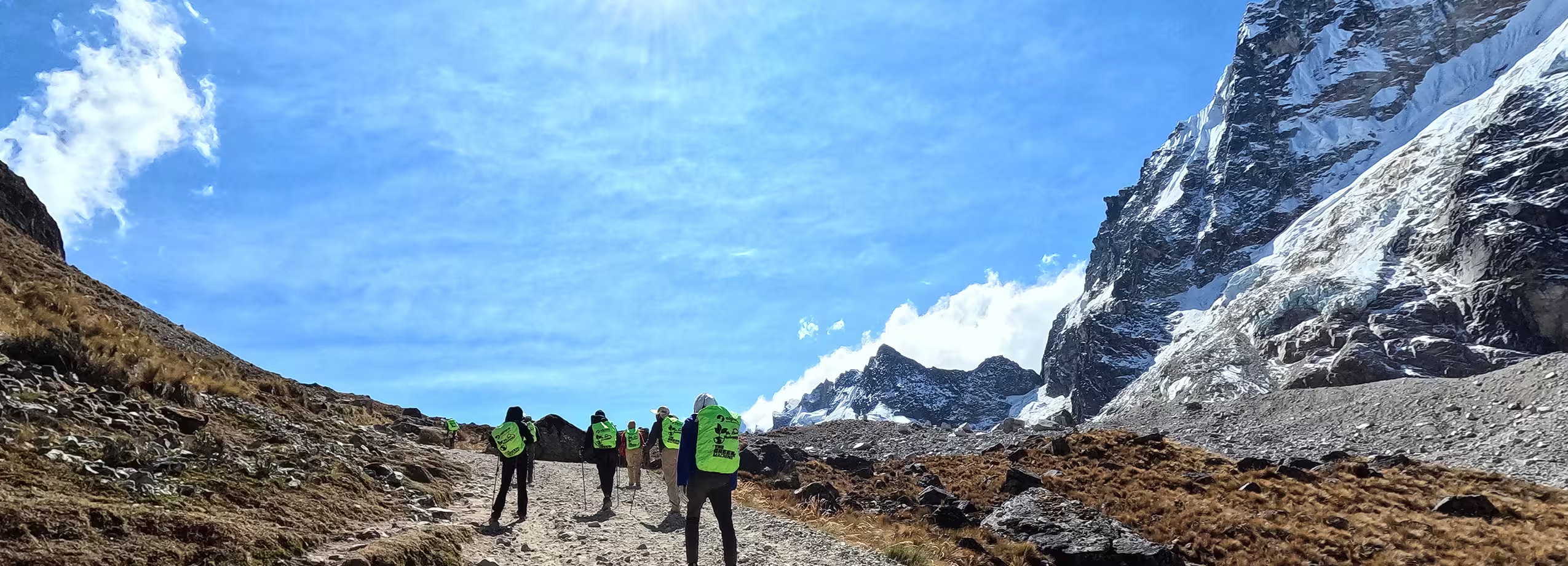
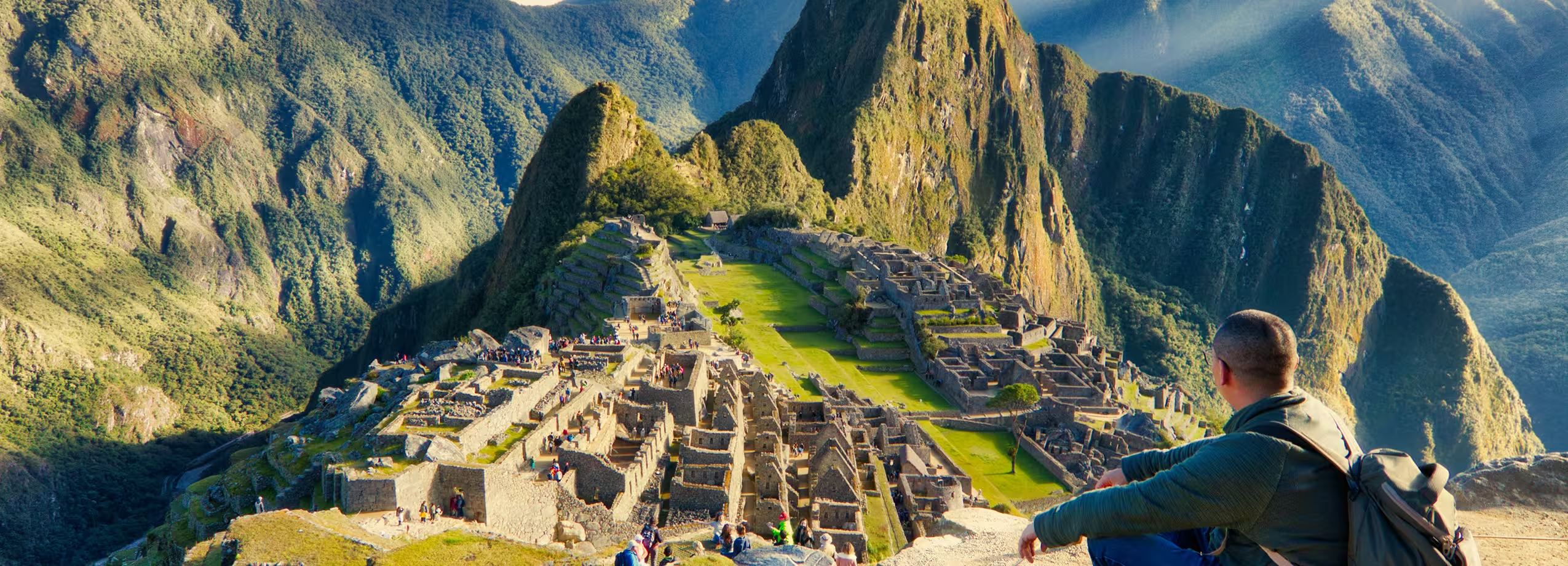
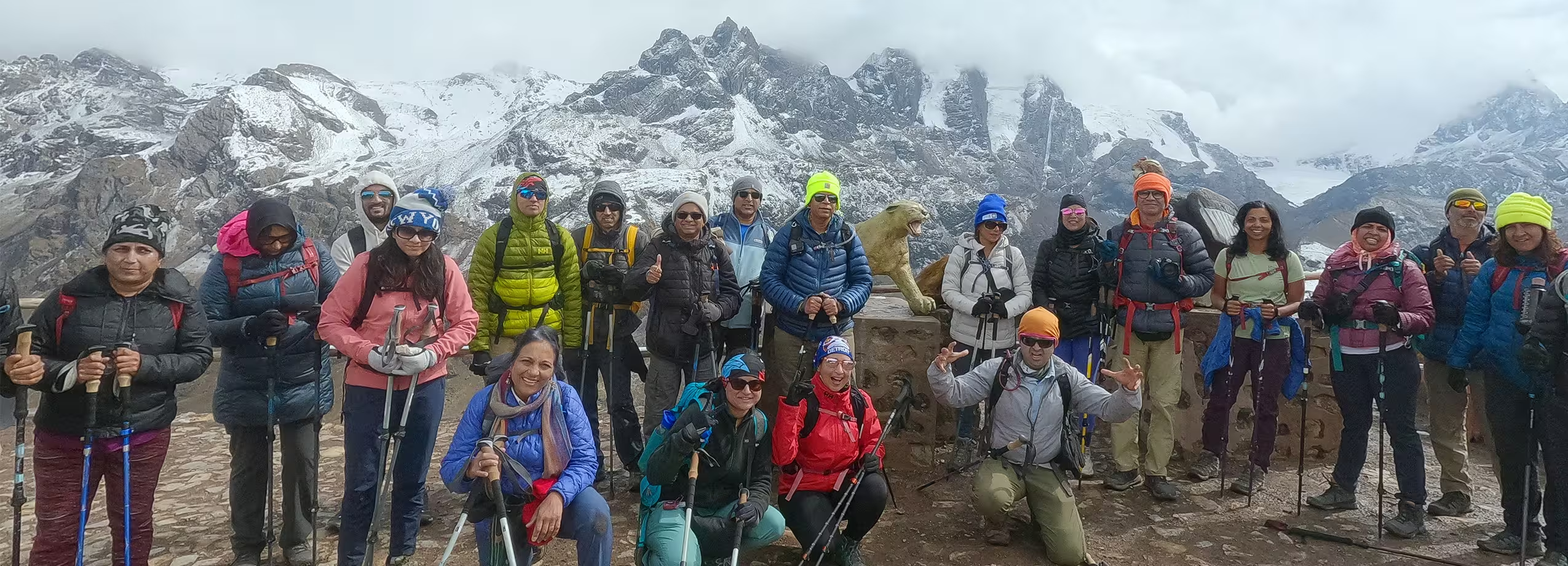
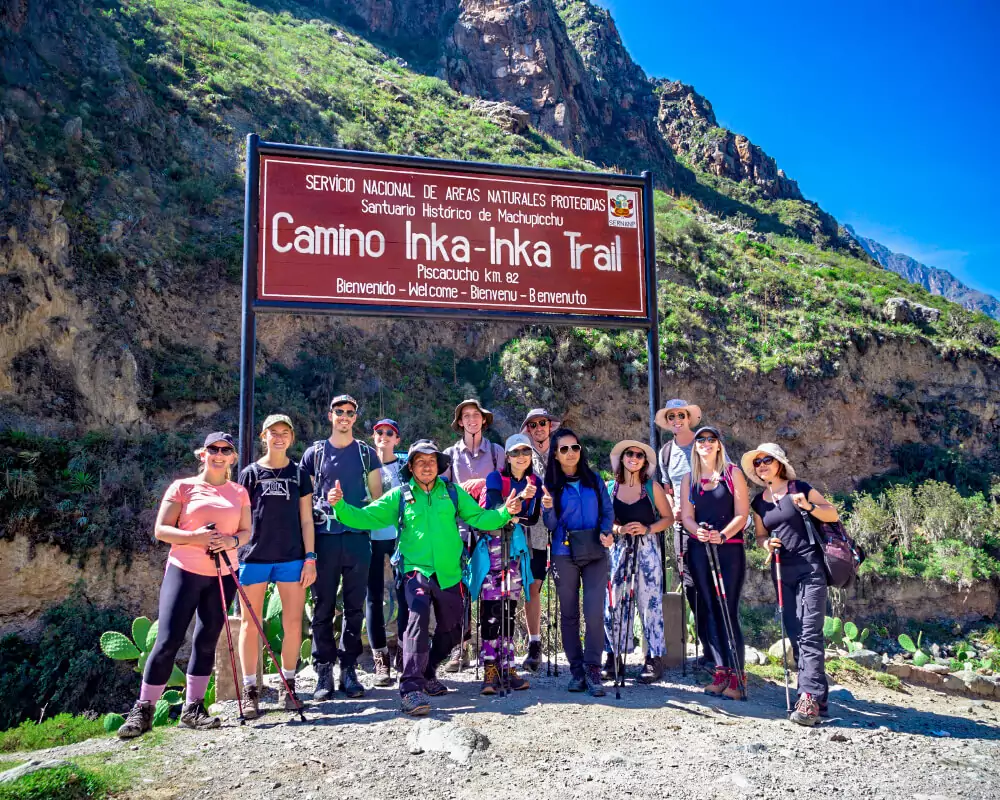
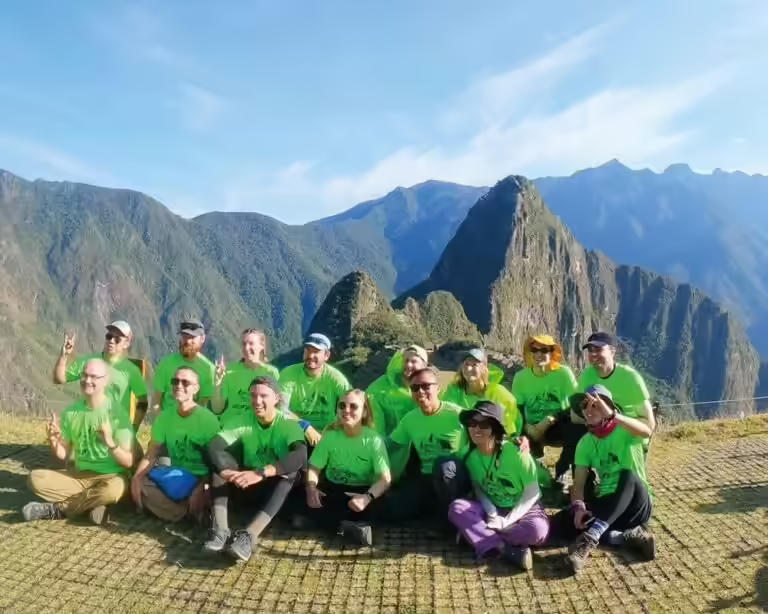
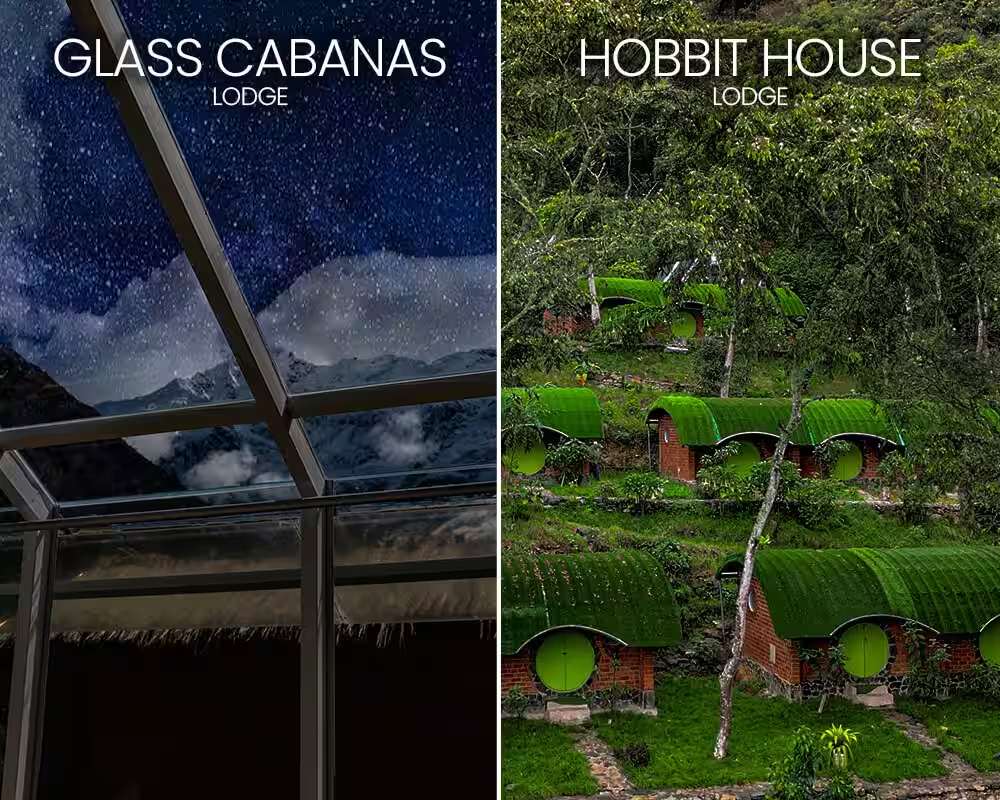

































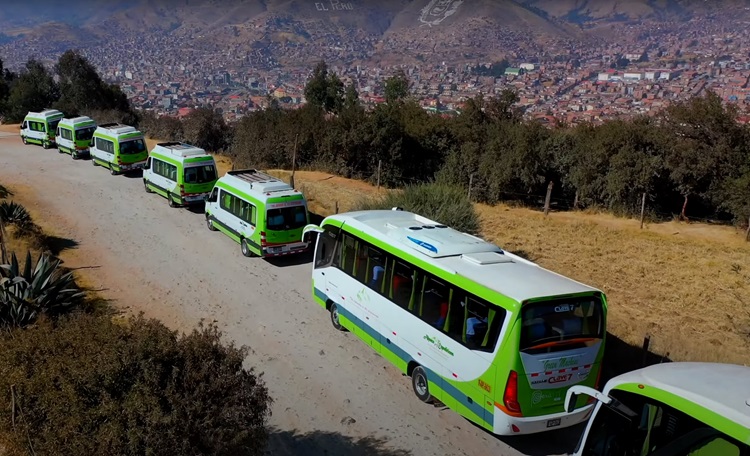
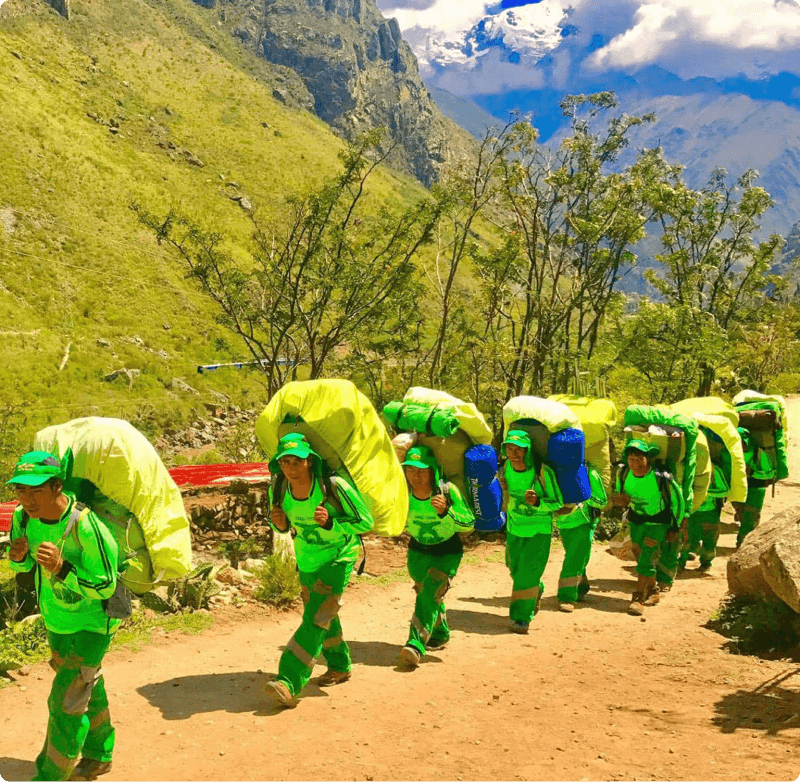 Porters will carry up to 7 kg of your personal items, which must include your sleeping bag and air mat (if you bring or rent one). From us, these two items weigh a combined total of 3.5 kg.
Porters will carry up to 7 kg of your personal items, which must include your sleeping bag and air mat (if you bring or rent one). From us, these two items weigh a combined total of 3.5 kg.